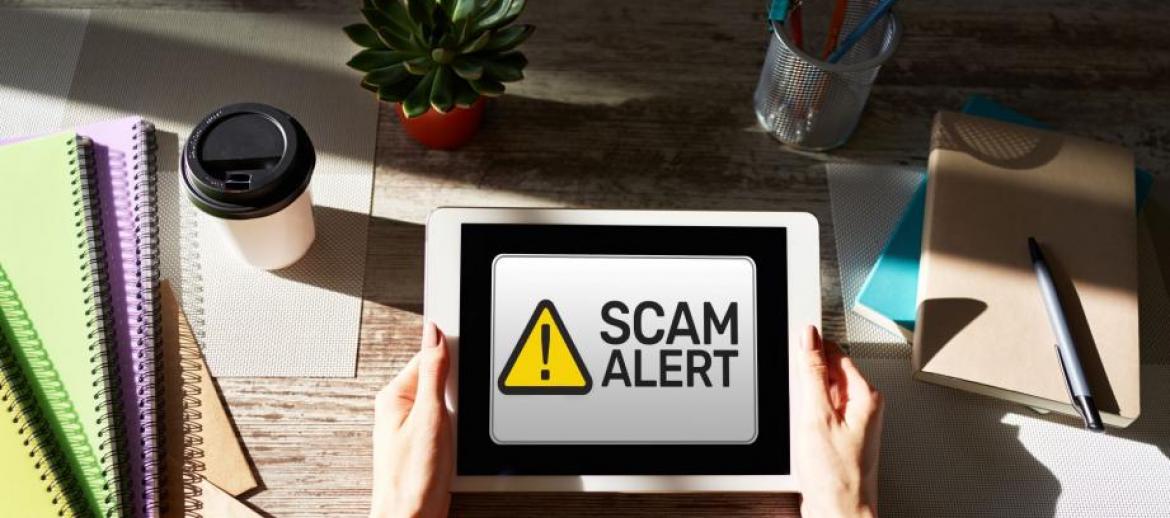Amazon Call Scams complete guide will be discussed in this article. Has someone ever contacted you pretending to be an Amazon account executive and asking for your Social Security number, credit card details, or Amazon account number? Perhaps they said it was to make sure you ordered the expensive item or to stop fraudulent purchases on your account. I hope you got off the phone quickly: That indicates a potential Amazon call fraud.
Amazon Call Scams Everything You Want To Know
In this article, you can know about Amazon Call Scams here are the details below;
Your personal information will never be requested over the phone by Amazon staff. However, con artists will, and they’ll use that information to access your online credit card site, make unauthorized purchases on your Amazon account, or sell your personal information on the Dark Web.
Regrettably, there is an increase in Amazon phone scams. A 2021 YouMail article claimed that scammers posing as Amazon employees were phoning up to 150 million Americans every month with robocalls. YouMail stated that in 2021, victims of these scams lost about $27 million.
Fortunately, you can sidestep falling victim to these scams and safeguard your money and personal data by knowing how to spot them.
What is an Amazon scam call?
A con artist posing as an Amazon agent will phone a victim in an Amazon call scam. The con artist will look for an excuse to ask the victim for financial or personal information during this call. Usually, victims are asked to give the credit card number, Social Security number, or account numbers and login credentials for Amazon.
Victims’ credit card numbers may be used by scammers to get access to their internet accounts and make unauthorized purchases. They may provide their victims’ Social Security information to the most aggressive buyers on the Dark Web. Alternatively, it’s possible that they will make illicit purchases of jewelry, electronics, and clothes using these victims’ Amazon account details.
How do Amazon call scams work?
The Amazon call scam comes in multiple forms. However, the intention of a con artist in each of them is to obtain your cash and personal data.
You can receive a call from a con artist claiming that someone has ordered a pricey laptop or flat-screen TV using your Amazon account. The agent explains that because the purchase was so big, Amazon needs to make sure you placed the order.
The con artist will request your credit card details and login credentials for your Amazon account after you advise the agent that you did not place the purchase. The con artist will clarify that in order to cancel the order and shield your account from further fraudulent activity, this information is required.
The fraudster can access your Amazon account and make fraudulent purchases in your name if you provide them this information. Your credit card information may also be used by the criminal to gain access to your online credit card account, which they can then use to make additional fraudulent purchases. The con artist may sell this financial information to the highest bidders on the dark web, causing you even more financial suffering. Also check Amazon Web Services
Robocalls could be used by other con artists to contact thousands of likely victims every day. These automated calls will claim that your Amazon account has been the subject of suspicious behavior. The robocall may prompt you to press 1 on your phone’s keypad in order to talk with a person if you respond. Should you proceed, you will be redirected to a con artist who will attempt to deceive you into giving up your private data. The caller may leave a message telling you to phone a specific number in order to safeguard your account if you don’t answer.
Occasionally, callers may claim that your account needs to be updated or verified by Amazon. You’ll need to supply your credentials, including payment card numbers and the login details for your Amazon account, in order to accomplish this.
Scams like “lost package” are also frequent. A caller will inform you that your recent order was lost in transit and that, in order to locate or replace it, Amazon needs your account number or other personal information. This is untrue. Additionally, it’s common for the caller to be unable to provide you any information regarding the lost item or to recall what you ordered.
Remember that con artists these days are tech-savvy as well. Many of them impersonate Amazon using spoofing technology, which creates the impression that the number is from the company. Don’t fall for a ruse to divulge personal or financial information, even if the caller seems to be the online store.
Red flags to watch for
Amazon offers numerous indicators that a call fraud is occurring.
- The topic is an order that you never placed. The person on the other end of the phone is not an Amazon representative if the conversation is concerning an order you haven’t placed. Go into your Amazon account and select the “Returns & Orders” option at the top of the page in place of entering any information. This will display a list of all recently delivered and unfulfilled orders. It’s a fraud if the caller isn’t enquiring about one of them.
- The caller requests intimate details from you. When you call Amazon, a representative will never ask for your credit card numeral or personal information. Hang up if someone calls & asks for your credit card number or Amazon account number. You are conversing with a con artist.
- The caller is unsure of what you placed in an order. Another clue that someone is trying to obtain your financial or personal information is if the caller never specifies exactly what you ordered and always refers to “your purchase.” Also check Websites Like Amazon
- You feel compelled to respond immediately by the caller. Con artists enjoy instilling a sense of urgency. A caller may claim that if you don’t give your account number right away, someone might make hundreds of dollars’ worth of new purchases under your name. This is a ploy to incite fear in you. You are more inclined to give out sensitive personal information when you are in a panic.
- It’s a recorded message from the call. Robocalls are recorded messages sent to several callers; Amazon does not send them. If you hear on the record that Amazon may have to suspend your access to your account due to fraudulent conduct, what does it mean? Put down the phone. It’s a fraud. What happens if a message is left on your voicemail by one of these robocalls? Don’t ever return the call, and erase it.
What to do if you’ve fallen victim to an Amazon call scam
What happens if you unintentionally give an Amazon scammer your personal information? Take immediate action to reduce the financial harm.
- Examine your credit card statements first. Search for any shady transactions that you are certain you did not make. Contact your credit card company right away if you discover any. After freezing your account, your provider will give you a new credit card. Your credit card company won’t charge you for the fraudulent purchases if you promptly report them.
- Verify that con artists aren’t using your funds to make unauthorized transactions by looking through your bank account statements as well. Once more, to stop additional harm and freeze your account, call your bank right away if you see any unusual activity or withdrawals.
- Get copies of your three credit reports from AnnualCreditReport.com. Your credit reports are kept up to date by the national credit agencies Experian, Equifax, and TransUnion. Each year, you can order one complimentary copy of each of your reports.
- Check your reports as soon as you get them for any new credit card accounts or loans that you know you haven’t opened. Your financial and personal information might be used by scammers to start credit accounts or take out loans in your name. Notify the credit agencies of any phony accounts or debts. Additionally, let the financial institutions know that these accounts are bogus by getting in touch with them.
Report the fraudulent activity to Amazon.
Report any suspicious activity to Amazon here if you receive a scam call from someone posing as an Amazon representative, regardless of whether you hang up on them right away or give them your credit card information. You’ll see that this page offers you a number of possibilities. Depending on how much, if any, information you gave scammers, you can click on different websites.
Here is where you may file a fraud report with the Federal Trade Commission. Don’t omit this action. By reporting these crimes, you can assist law enforcement in locating and prosecuting the con artists responsible.
The bottom line
The prevalence of Amazon phone scams is hardly shocking given the company’s size as a retailer. Additionally, there are more opportunities for fraudsters to deceive users of the site into divulging their financial information the more people shop there.
No matter how widespread these phone scams get, you can defend yourself from them if you stay alert and never give out your personal information to a caller.








Add Comment